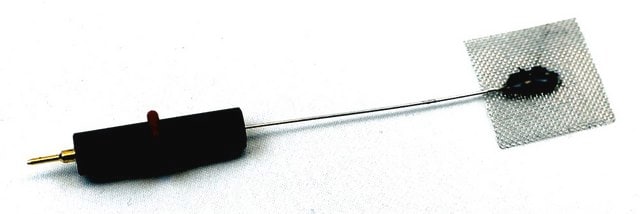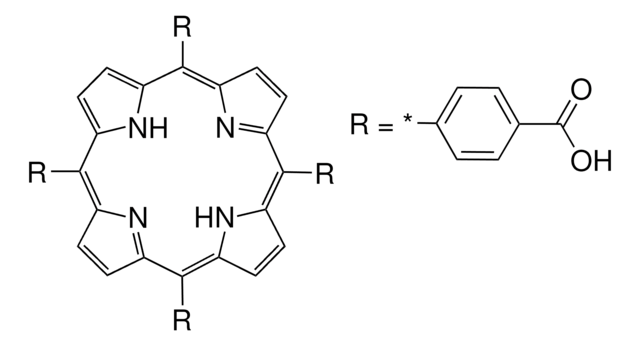298093
Platinum
gauze, 100 mesh, 99.9% trace metals basis
About This Item
Recommended Products
Quality Level
Assay
99.9% trace metals basis
form
gauze
resistivity
10.6 μΩ-cm, 20°C
particle size
100 mesh
bp
3827 °C (lit.)
mp
1772 °C (lit.)
density
21.45 g/cm3 (lit.)
SMILES string
[Pt]
InChI
1S/Pt
InChI key
BASFCYQUMIYNBI-UHFFFAOYSA-N
Related Categories
General description
Application
- as a microelectrode-indicator electrode in voltammetry
- to study chronopotentiometry of hydrogen peroxide with a platinum wire electrode or
- in gas detection instruments.
- as electrode in spectrochemical cell to measure the electrochemical properties of aqueous solutions of epinephrine, dopamine, and norepinephrine.
Quantity
Storage Class Code
13 - Non Combustible Solids
WGK
nwg
Flash Point(F)
Not applicable
Flash Point(C)
Not applicable
Choose from one of the most recent versions:
Already Own This Product?
Find documentation for the products that you have recently purchased in the Document Library.
Customers Also Viewed
Articles
Noble-metal nanostructures find diverse applications from catalysis to biomedical research, leveraging surface properties in various fields.
Noble-metal nanostructures find diverse applications from catalysis to biomedical research, leveraging surface properties in various fields.
Noble-metal nanostructures find diverse applications from catalysis to biomedical research, leveraging surface properties in various fields.
Noble-metal nanostructures find diverse applications from catalysis to biomedical research, leveraging surface properties in various fields.
Our team of scientists has experience in all areas of research including Life Science, Material Science, Chemical Synthesis, Chromatography, Analytical and many others.
Contact Technical Service



